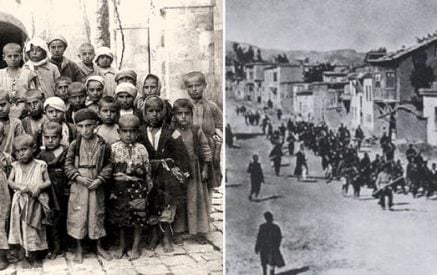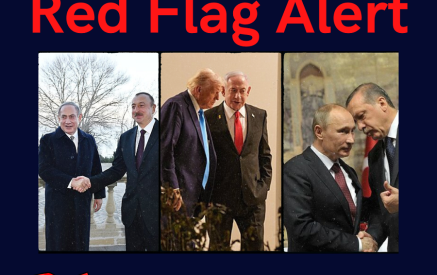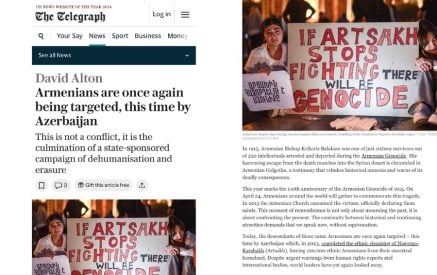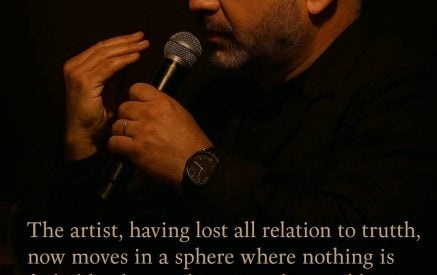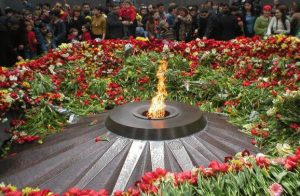
We are also aware that efforts have been made to set up local commissions in other countries. There is a plan to create a website in seven languages and to set up an expert group that will be adjunct to the Commission. However, it is still not fully known what the Commission wants to do, or what strategy it has adopted. Generally, there is little discussion of what really needs to be done in different fields, including in the mass media. It is also unclear what financing there is or will be needed to implement all the projects, and whether appropriate steps are being taken to secure the necessary financing.
We will try to present our understanding of what needs to be done by the state and all of us interested and concerned about this issue, hoping that it will stimulate discussion and ideas. We propose a concerted effort in the following three key interconnected areas:
- A pan-Armenian campaign to eternalize the untold stories
In almost every family there are very sad and touching stories about how our great grandfather or grandmother or their children fell victim or were by some miracle spared by the massacre, or how they were deported and ended up in another country. These stories have been conveyed to us by our grandparents and parents, or family photo albums in some cases, but many of us are beginning to forget them. Apparently, there have been isolated attempts to collect various stories about the Genocide, but these efforts never had a pan-Armenian nature, and were not broadly covered worldwide. A catalog of individual stories can play an essential role in not only preserving history, but also delivering these stories to the whole world by posting them in a very accessible website and reminding us and others of our story and its pages, remembering our ancestors and, possibly, reflecting on our present as well as future.
Read also
2. An archive of facts accessible in different languages, mainly Armenian, Turkish, Russian, English, German, French, and Spanish.
This concerns old and established facts, as well as new ones that are yet to be revealed. Surprisingly, to date there is no website where all such facts could be found. The website of the Genocide Museum, obviously, contains samples of documents in different languages, translated and without scanned copies of originals. Arguably, this collection of documents is not comprehensive, because their volume is very limited. For instance, only four documents have been translated from German.
Considering the rapid increase in access to information worldwide over the last decade, as well as the accessibility of archives, it is necessary to create a new initiative that will be aimed at collecting new archive materials and documents. All of this could be posted on the website referred to above in section one, including both originals and translations. The collection of new and old facts should be presented at a high-level international scientific conference could be organized, with participation of top-historians, well-known scholars, and politicians from different corners of the world, with the primary aim of once again discussing shed light on one of the gravest crimes against humanity, showing to the world and Turkey the painful and bloody pages of its history, and pressuring to recognize the Genocide.
3. A Series of events in different world centers, especially in Turkey
The aforementioned old and new materials can serve as a good basis for a series of events, contributing to a wider campaign to raise awareness of the Genocide. We believe that one should not only focus on exhibitions. We need new high-quality films, in addition to screening some old ones, concerts, numerous publications of new books and research papers. Striving for greater awareness and influence, for example, a few films could be produced starring some famous actors, which could be screened around the world and participate in the best-known film festivals.
Clearly, such events will hardly compel Turkey to change its position. However, if properly organized, we might see a new powerful wave of efforts aimed at wider recognition of the Genocide. It would be highly desirable for such an initiative to deliver such stories and facts to young people in Turkey.
We also suggest and strongly urge to seize this historic opportunity and revive the meaning of our history and the centennial anniversary of the Genocide with a perspective on the next 100 years. We ask to refrain from abusing tragic memories for whatever personal interests or goals. We also ask to refrain from abusing the history and strong feeling of people of Armenia and the Diaspora. It is necessary to find ways to seize the moment to reflect upon the consolidation of the Armenian people for having a dignified future, prosperous state, and healthy society, and to proudly stand next to the most developed nations. If the Armenian Genocide and its recognition have become an element of the Armenian identity, then it is now the time to redefine the meaning of identity and to try to shape a powerful nexus for the true and irreversible unity of the Armenian people and state, for Armenia and the Diaspora.
These thoughts were jointly articulated by a group of “Yerevantsi” residing in different corners of the world.
Yervand Shirinyan
Davit Amiryan
Davit Asatryan
Hovsep Avagyan
Sargis Mnoyan
Levon Hovsepyan
Gevorg Sargsyan
Yelizaveta Shirinyan
Stepan Galstyan
Levon Kocharyan




















































